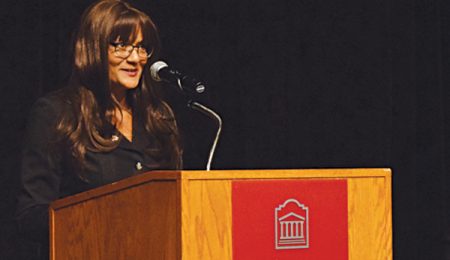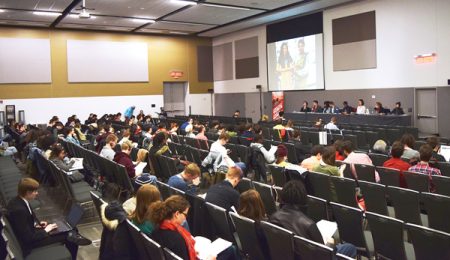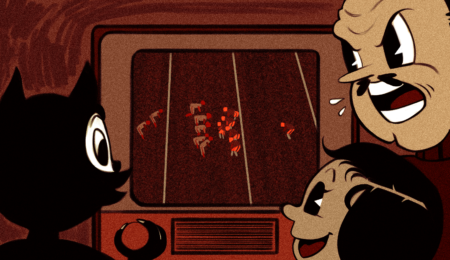Photo: Rémi Yuan
Hope Solo case highlights a dichotomy on how we view assault
Last summer, Hope Solo—one of the most recognizable faces in women’s soccer—was arrested on domestic abuse charges for allegedly assaulting her half-sister and 17-year-old nephew.
Last month, the charges laid against Solo were dropped. Throughout the entire affair, Nike and the U.S. national soccer team stuck by Solo.
The case stands in stark contrast to many of the high-profile domestic abuse cases that permeated the NFL last year. For example, when Adrian Peterson was accused of hitting his son with a switch, the media and the public condemned him immediately, resulting in a costly suspension and the loss of his corporate sponsors.
Even though organizations like the NFL are just now taking these cases seriously, the divide between the public reaction to Peterson’s and Solo’s case highlights the fact that there is a double standard on how we view domestic abuse.
When it comes to domestic violence, all victims should be treated equally. But for the most part, domestic violence against men—especially at the hands of women—is viewed as a myth or an urban legend. Many believe it simply doesn’t happen, or at least not frequently enough to be considered a significant problem. Research suggests this is definitely not the case.
A 2005 study by Statistics Canada found that approximately 7 per cent of the women and 6 per cent of the men they surveyed considered themselves to be victims of domestic violence in the past. A more recent report published by Parity, an equal rights charity from the United Kingdom, found that two in five victims of domestic abuse are, in fact, men.
However, even though there is evidence to suggest that a significant portion of domestic abuse victims are men, these incidents go largely unreported. While unreported cases of domestic violence are a harsh reality for women as well, police are still less likely to believe men when they claim to be victims of abuse.
Why? Because people treat domestic abuse against men like it’s a complete joke. This is not surprising, since we live in a society that has a very narrow view of what constitutes being a “real” man. We expect adult men to act like macho douchebags.
Because of this, any man who is caught being abused by his wife or girlfriend—as documented in several social experiment videos that can be found on YouTube—is automatically deemed a wimp or some kind of weak-willed individual who “had it coming.”
The Jay Z and Solange Knowles fiasco back in May shows that the general public is not above extending this logic to a high profile celebrity. The now famous video of Solange physically lashing out at Jay Z in an elevator led to more sniggering and joke memes than actual serious conversations about assault. Imagine if the genders were reversed, this security cam footage—much like the Ray Rice video that came about four months later—would have become another catalyst for nationwide discussions on domestic abuse.
Domestic violence should be taken seriously, no matter who the victim is. We simply cannot turn our backs on victims of abuse because they don’t fit into our pre-conceived notions of what abuse is supposed to look like.





